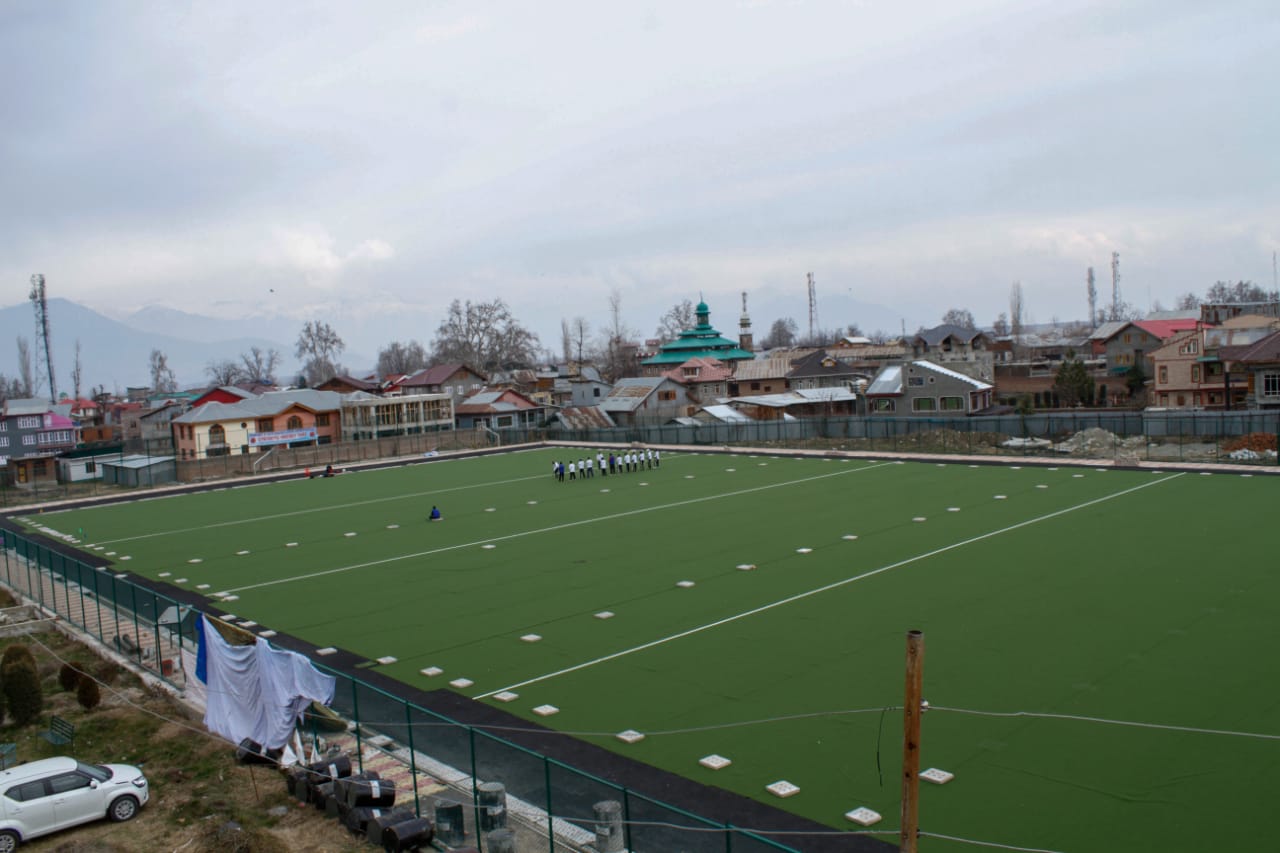Srinagar, Sept 24: The High Court (HC) of Jammu and Kashmir and Ladakh Saturday held that there is clear prohibition on transfer of agrarian land which can only be possessed by a person for personal cultivation or for other permissible purposes to a limited extent for residential, horticulture, industrial or commercial purposes subject to permission of the competent authority.
The court of Justice Sanjeev Kumar was hearing a plea of Mushtaq Ahmad Pandit challenging orders passed by the Additional Commissioner (Commissioner Agrarian Reforms), Anantnag on September 16, 2021 and June, 17, 2022.
In September 2021, the Additional Commissioner (Commissioner Agrarian Reforms), Anantnag had set aside the order passed by Collector Agrarian Reforms on July 16, 2005 wherein the petitioner was declared owner in possession of the land measuring 2 kanal 11 marlas situated at village Uranhall by adverse possession.
The court ruled that a person claiming ownership by adverse possession must plead and demonstrate by proof that he has been in continuous and uninterrupted possession of the property for over 12 years and that his possession is open and hostile to the actual owner.
As per the plea, on June 17, 2004 a private respondent had entered into an agreement with the petitioner for sale of a land measuring 2 kanal 11 marlas situated at village Uranhall against a sale consideration of Rs. 16,76,000, out of which the petitioner had paid a sum of Rs. 5,01,100 at the time of execution of the sale agreement.
The petitioner was also put in possession of the subject land and the petitioner and private respondent in collusion with each other, decided to get a consent decree from the Collector Agrarian Reforms, Anantnag.
Accordingly, a suit was presented by the petitioner on June 29, 2005 for a decree of declaration, declaring the petitioner owner in possession of the subject land by adverse possession.
The private respondent, against whom the suit was filed by the petitioner, chose not to contest it and instead consented for passing of a decree of declaration as prayed for by the petitioner.
However, the Collector Agrarian Reforms acting suo-moto summoned the petitioner and private respondent and reversed his earlier order dated July 16, 2005 by passing a fresh order on September 01, 2005 on the ground that the compromise entered into between the petitioner and private respondent was sham and attempted to defeat the provisions of J&K Agrarian Reforms Act 1976 as also to effectuate transfer of immovable property in disguise of sale deed.
Later, the petitioner challenged the order passed by the Collector Agrarian Reforms, Anantnag in September, 2005 before the Financial Commissioner Revenue (with Powers of Commissioner, Agrarian Reforms), Srinagar in an appeal which was allowed and the order of Collector Agrarian Reforms, Anantnag was set aside.
Aggrieved of the order, the private respondent filed a revision petition which was dismissed by the Jammu & Kashmir Special Tribunal on June, 28, 2013.
The private respondent filed an appeal and an application seeking condonation of delay against the first order passed by Collector Agrarian Reforms on July 16, 2005 before the Additional Deputy Commissioner (Commissioner, Agrarian Reforms), Anantnag which was considered on merits while setting aside the order passed by Collector Agrarian Reforms on July, 16, 2005.
Perusing the material on record, the court noted that Collector Agrarian Reforms, Anantnag, without even realizing that as per own showing of the petitioner he was put into possession in June, 2004 that too pursuant to an agreement to sale executed between the parties, obliged the petitioner and private respondent and passed the decree prayer for.
The bench pointed out that the petitioner and the private respondent succeeded in evading the payment of the stamp duty and getting the document of conveyance registered under the Registration Act.
The bench underscored that the Collector Agrarian Reforms, Anantnag, without having been vested with the powers of review, suo moto acted on realizing the mistake and reviewed the order/decree of declaration of ownership passed in favour of the petitioner.
The court held that the suit which was filed by the petitioner against the private respondent before the Collector Agrarian Reforms, Anantnag, was a collusive suit.
“Not only the possession of the petitioner over the subject land was permissive having been obtained in pursuance of agreement to sell but the same was only a year old,” Justice Kumar said.
The court noted that it should have been more than clear to the Collector Agrarian Reforms that the suit was a device to transfer the Agrarian land otherwise than by executing a proper sale deed and in contravention of the provisions of the Act.
“Without going much in details, suffice it to say that the subject property could not have been validly sold by the respondent No.3 to the petitioner in view of the prohibition contained under the Act,” the court said.
The bench underscored that assuming that the transfer of the subject land was permissible under the provisions of the Act,” yet it could not have been done without executing a sale deed in writing, paying the proper stamp duty and getting it registered before the registering authority.”
The court held that there is not even an iota of doubt that the suit filed by the petitioner against private respondent, which culminated into passing of a sort of consent decree by the Collector Agrarian Reforms on July 16, 2005, was collusive in nature filed with an aim of accomplishing a sinister purpose, that is, obtaining an order in contravention of the provisions of the Act.
Justice Kumar recorded that the intention of the parties in filing the suit was obvious and the sole purpose was to transfer the agrarian land from private respondent to the petitioner without executing a proper sale deed, without paying the stamp duty and without getting it registered as also to defeat the provisions of the Act.
In the instant case, the court pointed out that the claim that was put forth by the petitioner was fictitious and the contest that was made was unreal.
“The petitioner and respondent succeeded in getting a decree passed, which was a mere mask having the similitude of judicial determination and worn by the parties to defeat the provisions of the Act,” the court underscored.
It noted that the petitioner and respondent by entering into a “secret and unholy alliance”, played a fraud on the court and obtained a decree which was not only a result of collusion between the two but was in contravention of the provisions of the Act.
“I am of the considered opinion that the order of the Collector Agrarian Reforms, Anantnag dated July, 16, 2005 was as a result out of collusion between the petitioner and the respondent No.3 aimed at achieving the sinister purpose of conveying the agrarian land in contravention of the provisions of the Act and to avoid the payment of stamp duty and registration of document of conveyance,” Justice Kumar said.
Deliberating upon Section 19 of the Agrarian Reforms Act, the court underscored that an appeal against the order of Collector Agrarian Reforms before the Commissioner is maintainable at the instance of a person aggrieved and ordinarily a person who has consented to an order cannot be said to be a person aggrieved.
Had it been an appeal against the order of Collector simpliciter, in the ordinary course of things, the position would have been different, the bench said.
However, the court said, in the instant case, what was brought to the notice of the appellate authority was the fraud and collusion of the seemingly adversaries which culminated into passing of the order under challenge in appeal.
Justice Kumar held that such order or decree obtained as a result of collusion or fraud is nullity in the eye of law and, therefore, does not even require a formal declaration.
“If the forum hearing appeal/ revision comes to a conclusion that the order impugned before it is passed by the forum below in a proceeding filed in collusion, such authority cannot shut its eyes and refuse to entertain the same on the ground that the appellant before him was also a party to such collusion and fraud,” the court recorded.
Such orders, as and when brought to the notice of the appellate or revisional authority, are required to be avoided without any delay, the court said.
Justice Kumar recorded that this court, while exercising its extraordinary writ jurisdiction vested in it under Article 226 of the Constitution, has vast powers to declare such orders, obtained by collusion or fraud, as null and void.
“Assuming that the appellate authority, i.e. Commissioner Agrarian Reforms could not have exercised the jurisdiction to set aside the order of Collector Agrarian Reforms, Anantnag dated July, 16, 2005 at the instance of respondent, nothing prevents this Court to hold order dated July, 16, 2005 passed by Collector Agrarian Reforms, Anantnag, a nullity in the eye of law having been obtained by the petitioner in collusion with respondent in contravention with the provisions of the Transfer of Property Act, the Registration Act and the Jammu and Kashmir Agrarian Reforms Act, 1976,” the court said.
The bench held that such order is non est in the eye of law and must be held so.
Dismissing the plea, the bench directed the competent revenue authority to take note of the contravention of the provisions of the Act made by the petitioner and the respondent in respect of the subject land and to take appropriate action as envisaged under the Act, which may include vesting of the subject land in the State.








